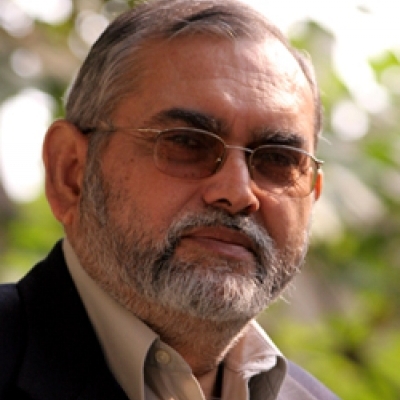



 Zafarul Islam Khan
Zafarul Islam KhanIt is clear now, within days of the joyous installation of the Bharatiya Janata Party (BJP) government at the Centre with dances and record sales of sweets in its bastions, that it is going to be an extremely short-lived wonder, unlikely to survive beyond 31 May - the date fixed by the President for the BJP to prove its majority in Parliament. Gloom has now set in the BJP headquarters in the capital. The smiling faces of its leaders look extremely worried now. The long awaited power is slipping out of its hand with each passing hour as no political group is ready to commit suicide by supporting the BJP.
The Indian elections held earlier this month led to the installation of the first ‘Hindutva’ government at the Centre under the BJP. This force has been struggling to gain power for half a century - since Independence. Its fortunes changed a decade ago when it decided to aggressively popularise its hate agenda and recklessly used the Babri Mosque issue, leading to the demolition of the historic mosque by the Hindutva hoodlums on 6 December 1992. Thus from just two seats in Parliament in 1984 it steadily increased its strength in subsequent elections and has now got 160 seats, which together with its allies goes to 195 seats in a house of 545 seats. And here lies its weakness in a democratic system. It does not enjoy majority and no one from outside, at least openly, is ready to support it on the floor of Parliament in order to enable it to prove its majority for which it will need at least 75 supporters from outside.
The BJP, in any case, remains a regional party confined to the ‘Hindi’ or ‘Cow’ belt of northern states. It has also failed to get a clear mandate. Its share of votes cast this year was only 23.5 percent - hardly enough to claim a moral majority.
The BJP has now resigned itself to return to the opposition benches after making some populist moves. It will go to the people now with an added plank that ‘pseudo-secularist’ robbed it of its mandate and ganged up against the ‘Hindus’ of the country.
The opposition from other political parties of all colours and leanings to the BJP is amazing. It was earlier assumed that once in power, the BJP will be able to attract defectors from other parties through manipulation and various inducements ranging from outright bribery to power sharing. But this did not happen. A recent cartoon in an Indian paper put it aptly by showing a BJP leader saying, `Now I know how it feels being an untouchable.’
The scenario now will be similar to the early 1990s after the fall of the V.P.Singh government when everyone, typical of the Indian disease, wanted to be Prime Minister and rocked the boat and lost the voters’ confidence in the process. This enabled the Congress to romp in with the ‘stability’ plank and the ‘TINA’ (There Is No Alternative [to the Congress] ) maxim.
The BJP strategy now will be to force an early election in the hope of gaining an outright majority to form a stable government at the Centre in order to implement its programmes. In any case, it has successfully made a point this time: that it can reach the top, that votes given to it are not ‘wasted’ as was alleged earlier by its rivals.
Misleading signals notwithstanding, the BJP has made it clear that it will not dilute its ‘Hindutva’ programme. The allegedly ‘moderate’ BJP leader, Atal Behari Vajpayee, said in his first interview as Prime Minister that the Ram Temple will be built exactly at the site of the demolished mosque. Vajpayee does not represent the BJP mainstream. He normally lives in the party’s cold storage and is revived whenever the party needs to project a ‘moderate’ face. His law minister’s first step in his office was to order for the files on the ‘common civil code’ which is the Demoelean sword used to terrorise Muslims that their personal laws will be replaced by a common civil code, depriving them even of the very limited application of Shari`ah in their personal and family lives (marriage, inheritance, etc.).
Indian Muslims, with over 50 million Muslims, are partly responsible for this outcome for their failure to vote organisedly. In the absence of a strong and responsible leadership, their votes were mainly used in a negative way and were wasted in the process. It is in their interest that communalist forces are held at bay and a strong secular government takes over at the Centre. Muslims are the first victims of ‘Hindutva’ but they seem to be the last to realise this and respond through positive and sustained effort. Other parties from the extreme left to the extreme right have clearly perceived the long-term effects of the obscurantist philosophy of the RSS (Rashtriya Swayamsewak Sangh) organisation which is purveyed through its political offshoot, the BJP.
Muslimedia - April 1996-August 1996
